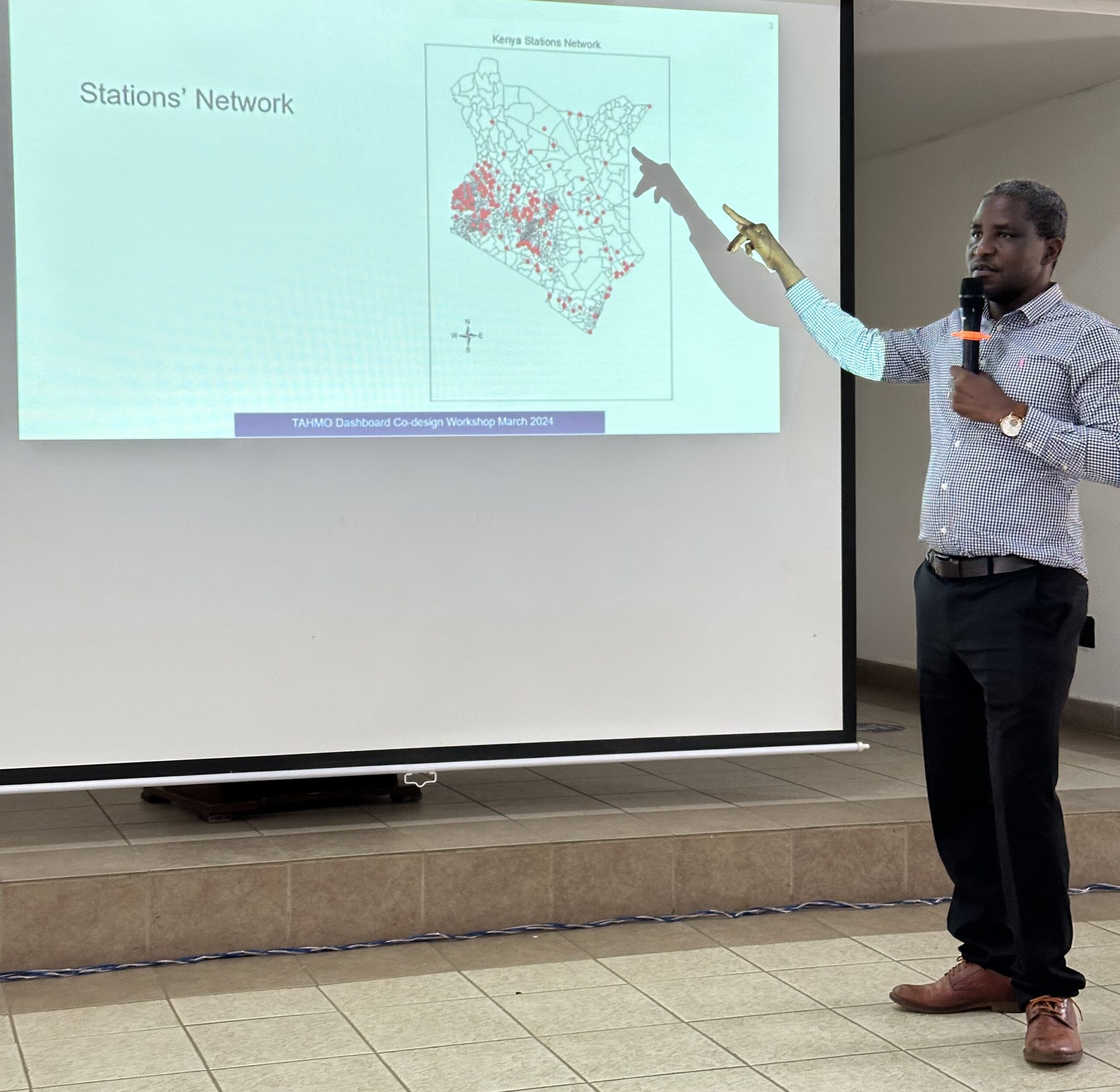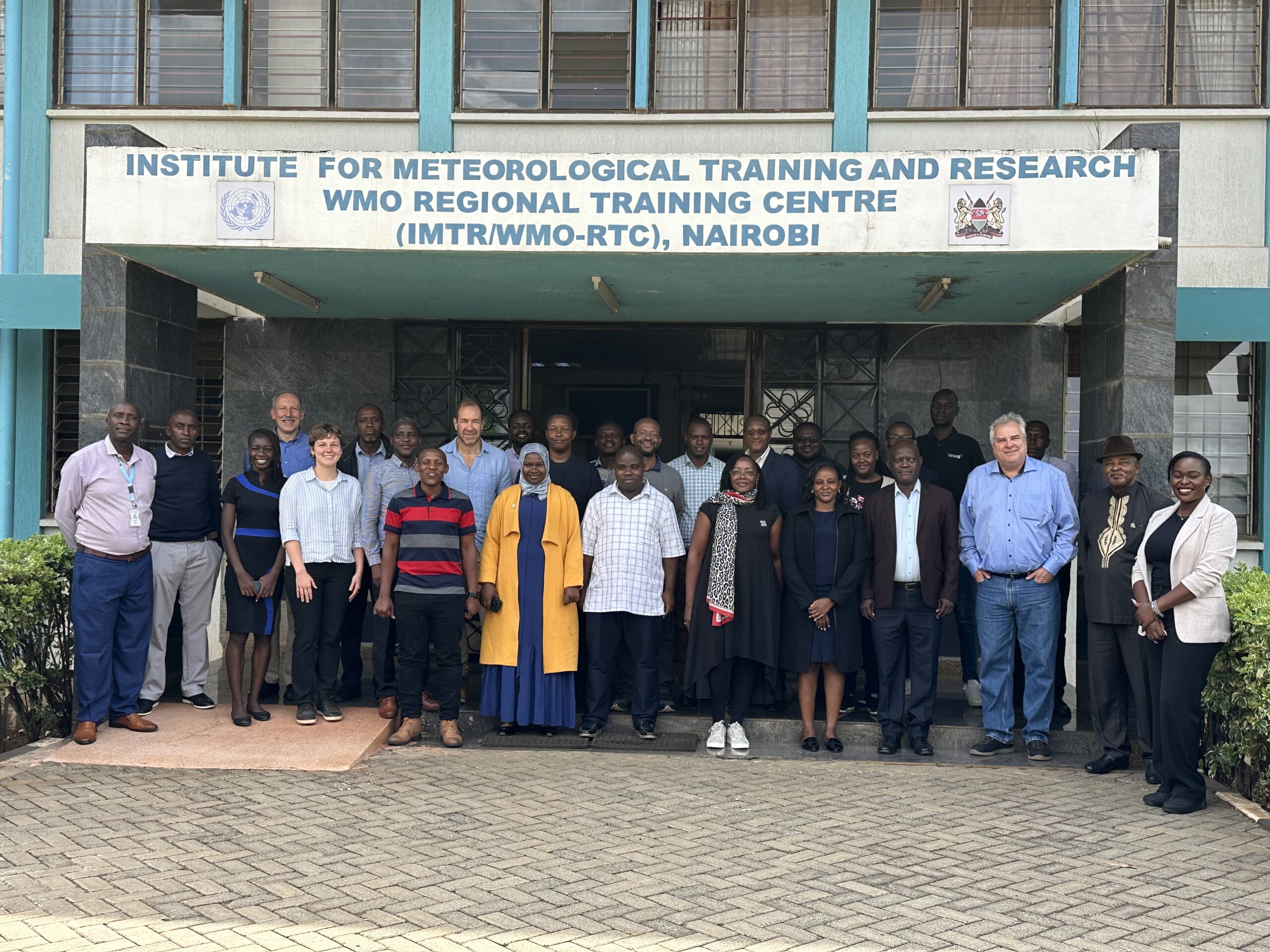Nairobi, Kenya – In celebration of World Meteorological Day 2025, tomorrownow.org joined meteorological observation experts representing met agencies across Africa at a co-design workshop hosted by the Trans-African Hydro-Meteorological Observatory (TAHMO) at the Kenya Meteorological Department HQ in Nairobi, Kenya.
The purpose of the workshop was to comprehensively review and analyze current quality assurance (QA) and quality control (QC) practices (QA/QC) across Automated Weather Station (AWS) networks.
Through a co-creation process, the participants examined the tools and techniques currently in use, identifying strengths and weaknesses in the methods applied to ensure both AWS system and sensor health within the context of AWSs.
In parallel, the workshop focused on identifying key failure mechanisms at both the system and sensor levels and pinpointed common issues affecting AWS performance, laying the groundwork for innovative solutions to solve these challenges.
The Importance of Meteorological Observations
Meteorological observations are the backbone of climate resilience and economic prosperity. They play a critical role in:
- Early Warning Systems: By providing timely and accurate weather data, communities and governments can better prepare for extreme weather events, reducing risks and enhancing safety.
- Adaptive Strategies: Reliable data guides the development of adaptive measures to mitigate the impacts of climate change.
- Risk Management: Comprehensive weather insights support the design of robust insurance models and disaster preparedness plans.
Furthermore, accurate weather and climate data are vital for optimizing agricultural practices, enhancing energy production, ensuring transportation safety, and more. These factors collectively drive sustainable economic growth and improve overall quality of life.
Moving Forward Together
The workshop underscored the need for advanced weather services that directly impact critical sectors such as agriculture, where smallholder farmers depend on accurate weather forecasts to secure their livelihoods.

By improving AWS operationalization, key stakeholders are not just advancing meteorological science — we are paving the way for enhanced food security, better resource management, and robust economic development across Africa.
The spirit of collaboration and innovation demonstrated at the Nairobi workshop is a powerful reminder of why weather matters for critical sectors of the economy.
As stakeholders work together to implement next-generation weather services at the first and last miles, every insight and improvement contributes to a future where communities are better equipped to face the challenges posed by extreme weather events.
Today, as we celebrate World Meteorological Day 2025, let us remember that every forecast, every data point, and every collaborative effort brings us closer to a resilient, sustainable future for all.

